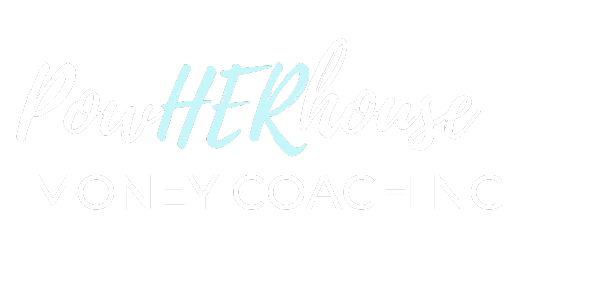[et_pb_section fb_built=”1″ _builder_version=”4.5.0″][et_pb_row _builder_version=”4.5.0″ background_size=”initial” background_position=”top_left” background_repeat=”repeat” custom_padding=”0px|||||”][et_pb_column type=”4_4″ _builder_version=”3.25″ custom_padding=”|||” custom_padding__hover=”|||”][et_pb_text _builder_version=”4.5.0″ background_size=”initial” background_position=”top_left” background_repeat=”repeat” hover_enabled=”0″]
Everyone seems to have a side hustle these days. It’s the new “in” thing and why wouldn’t you? It’s a great way to build a passive income and give yourself just that little bit of extra freedom to help you reach your financial goals.
But what if you want to make the leap from your current income to going part time to full time with your side hustle?
We’ve put together our top tips to get help you kick-start your financial freedom journey!
1. Focus, Preparation & Mindset!
What is the actual goal and purpose of your new business? Have you taken the time to write out a plan for yourself, so you have a guide to follow? It’s critical to have a written business plan you can follow and use as a working tool. Something that is well thought out will set you up for success. When done well, this is set up as a guide to keep you on track and allows you go back to and reference for reminders of your mission and future projections.
A big part of this plan should also help you with cash flow projections and financial goals. This is something that should be updated when needed as your business grows and morphs. Think strategically about what you want your core mission to be. What makes you so great? What are your strengths, weaknesses, opportunities and threats?
When you’re a new, excited, ambitious business owner it’s much too easy to get distracted and lose focus. When you write these things down it helps to keep you FOCUSED and on track. Your goals and objectives will inevitably be changing as you grow, but they act as a good guide.
2. Define your strengths and weaknesses
I always recommend also making a list of what you’re awesome at and what you love doing. Make a second list of what you hate doing and a list for things you know aren’t your strengths. This will make it easy for you to reference when you’re overwhelmed and assist you in deciding on what should be outsourced first or what core competencies your first hire needs to have. Again, it will come full circle to keep the focus!

3. Stay focused on your goals
As an entrepreneur, it’s easy to get distracted and throw money at things that might not really help get you to where you want to be. I know it can feel good to spend money towards different seminars, education, marketing events because it feels like you’re doing something or making progress, but often they can be loss leaders and a big waste of your time.
You need to remember to protect not only your time but mission ferociously. Always ask yourself this question: “Is this resource (time or money) I am allocating going to help me reach my end goal?” If so, what is the outcome you want from that resource? Keep the confidence. If you have passion for what you’re doing, you will be profitable.
4. Plan for unforeseen events
Since you’re on your own, it also means you assume 100% responsibility for everything so it’s best to be prepared. Not only protecting your own income and personal property but also making sure you’re covered from any outside liability. It’s super important to make sure you have the proper insurances in place for your company.
Depending on the nature of your business and potential for liability exposure should be reviewed and discussed in detail with your insurance agent(s). For example, if you have a business that carries inventory, make sure the value for that is covered in your policy making sure you’re covered for the potential loss of that value. This is something we sometimes see overlooked, especially in the network marketing niches.
If you become disabled or unable to come to work and run your company, business overhead insurance, and individual disability income insurance is something to consider. Overhead insurance will cover your operating expenses, so you can “keep the lights on” pay the lease agreement and staff while you recover.
Individual disability insurance replaces a percentage of your paycheck, so you still have income coming into the household for personal expenses. This is especially important if you’re the sole person generating revenue or new business development for your company. To be real, no one loves to talk about insurance or pay for it, but it’s one of those things you 100% don’t want to be without either!
On the note of disability insurance and knowing what you need to protect, it’s critical to really understand your expenses and the amount you will need for the first year of running your business. This goes for your household needs AND the business. This way you know what your risk tolerance is and how long you can live off your savings without taking an income.
5. Plan ahead for your first year in business
If you know what it will take to pay for your living expenses for a year, you can save that money up prior to starting your own gig or transitioning into business on your own full time. I recommend you also understand your spending habits and cash flow too. Often that gets overlooked and many times people find themselves in extra and unwanted credit card debt.
Take into consideration how much the business will cost you year one. This amount should also be saved, or have funding secured… if possible. Think about startup expenses such as office supplies, software, CRM management, insurances, marketing. Will you need employees or brick and mortar space?
The more you prepare and know the numbers the less stressful it will be when you don’t have an income coming in for a period of time or if it’s sporadic. This will help you to not freak out if the business is in the red the first year or two- which is normal! It’s ok and the money comes, if you are confident and love what you’re doing- to the level of obsession.
You need to be consistent, strategic, and always self-evaluate. Let’s be honest, being an entrepreneur is not for the faint of heart. It’s hard, it will challenge you emotionally and put you through roller coasters you won’t understand until you’re through the trenches. The good news is it is TOTALLY WORTH THE EFFORT. Speaking from experience, nothing is more rewarding than living out your dream and doing what you’re put on this earth to do.

6. Building a support system
Living your purpose will fill your heart and force you to spring out of bed in the morning. Mindset will be everything. A positive mindset and having endurance will separate you from failure to greatness. Repeat to yourself this simple phrase: you can give reasons or get results! Ask for help, hire experts, and never give up. No one rises to the top alone. You need to build your tribe.
Ask for help, hire experts, and never give up. No one rises to the top alone. You need to build your tribe.
Surround yourself with advisors you trust and count on to help you with your financial affairs, legal needs, and taxes. These three people should be your financial planner/coach, attorney, and CPA. Maybe a business coach too!
Often, it’s helpful to have a mentor or coach to keep you on track and hold you accountable. It’s powerful to have a supportive community to keep you on your toes and guide you along the way. Remember: no one who is successful is successful alone. Asking for help is one of the most powerful things you can do.
You’ll want a support system and the right people to lean on. If you have questions, need help with the numbers, want to talk out your ideas, get business coaching and empowerment, WE ARE HERE to help you be the PowHERhouse you’re capable of.
[/et_pb_text][/et_pb_column][/et_pb_row][/et_pb_section]






